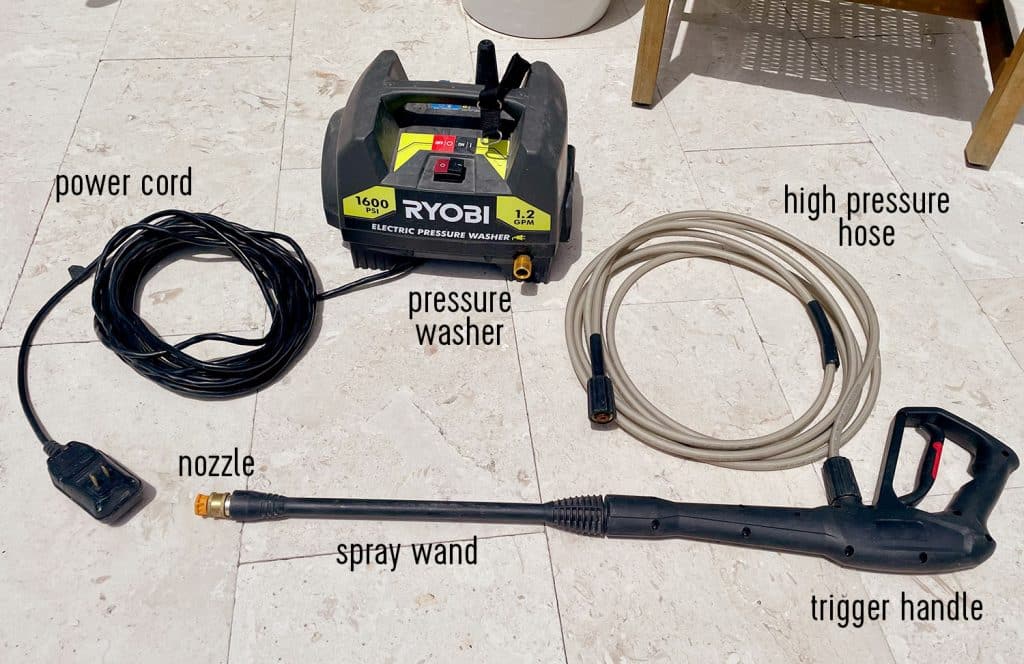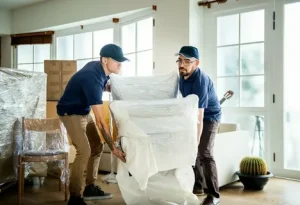If you’ve got a pressure washer, you know how handy it is. Cleaning your driveway, washing the car, or even getting rid of dirt from hard-to-reach places—pressure washers make all these tasks easier. But here’s the thing: They need some regular care to stay in tip-top shape. Don’t worry, though! I’ve got your back. Let’s talk about how to keep your pressure washer working like a charm, with some simple steps.
In New Jersey, where the weather can switch up on you quickly, keeping your pressure washer parts in good condition is a must. If you want it to last and perform well, a little maintenance goes a long way. So, let’s dive in!
Key Parts of Your Pressure Washer: Here’s What You Need to Know
A pressure washer isn’t just a fancy garden tool. It’s made up of different parts that all need to work together. Let’s take a quick look at the main parts you’ll need to keep an eye on.
The Pump
The pump is the magic behind your pressure washer. It takes the water from your hose, pressurizes it, and then shoots it out through the nozzle. Without the pump, your machine wouldn’t really be a pressure washer—it’d just be a garden hose with a fancy nozzle.
So, what should you watch for?
- Low water pressure.
- Strange sounds or noises coming from the pump.
- Leaks or water dripping from the pump.
If any of this happens, your pump might need some attention. In New Jersey, the cold weather can sometimes cause the pump to freeze or get damaged. So, it’s good to check it every so often, especially before the winter chill hits.
The Hose
The hose is pretty straightforward. It’s the part that carries water from your pressure washer to the nozzle. It’s essential for delivering the power needed to get the job done. But here’s the thing: If your hose is cracked, kinked, or leaking, you’re not getting that pressure you need.
Check for these things:
- Cracks or cuts in the hose.
- Kinks or bends that could affect water flow.
- Leaks anywhere along the hose.
A little care here goes a long way. Store your hose properly when not in use—especially in New Jersey, where freezing temperatures can damage hoses. If you notice a leak or crack, don’t ignore it. Replace the hose as soon as you can to keep the pressure washer working properly.
The Nozzle
The nozzle is like the “funnel” for all the pressurized water. It controls how much water comes out and the force with which it comes out. If the nozzle is clogged or damaged, it can mess up the pressure.
Tips for taking care of your nozzle:
- Check it after each use for any clogs.
- Clean the nozzle with a small wire or needle if it gets blocked.
- If it’s worn out or cracked, replace it.
In New Jersey, where dirt and grime can build up fast, especially with all that road salt in the winter, cleaning your nozzle regularly is key to maintaining good pressure.
The Motor or Engine
The motor is the powerhouse behind your pressure washer. It’s what gets everything running and makes sure the pump gets power. Without a strong motor, your pressure washer just won’t do its thing. So, you gotta take care of it.
What you need to do:
- Check the oil regularly and change it when needed.
- Clean or replace the air filter to keep airflow clear
- Clean the spark plug so it can fire up properly.
Since New Jersey can get pretty cold, it’s a good idea to check your motor before winter sets in. Freezing temps can mess with your engine, so giving it a quick look every season can save you trouble later.
How to Keep Your Pressure Washer Running Smoothly
Now that you know the main parts, let’s talk about how to maintain them. Don’t worry—it’s not hard at all. Just follow these simple steps.
Clean the Filter
Your pressure washer filter keeps dirt and debris from getting into the pump. But over time, it can get clogged, which will affect your machine’s performance.
Here’s how to clean it:
- Turn off the pressure washer and disconnect it.
- Find the filter and remove it carefully.
- Clean it with water and let it dry before putting it back.
Cleaning the filter regularly will keep your pressure washer running better and longer.
Lubricate Moving Parts
Your pressure washer has moving parts, like the pump and engine, that need lubrication. Lubricating them prevents rust and wear-and-tear.
How to lubricate:
- Use the recommended lubricant (check your user manual).
- Apply it to the pump, engine, and any moving parts.
A quick lubrication session once every season will keep things running smoothly. Don’t skip this step!
Check Oil and Fuel Levels
If your pressure washer runs on gas, oil and fuel are essential. Low oil can cause engine problems, while old or bad fuel can clog the engine.
What you should do:
- Check the oil and change it regularly.
- Always use fresh fuel. Don’t let it sit for too long.
In New Jersey, where temperatures drop in winter, it’s especially important to use fresh fuel. If you’re storing the pressure washer during colder months, consider using a fuel stabilizer to keep the gas from going bad.
Fixing Common Pressure Washer Problems
Even with good maintenance, things might still go wrong sometimes. Let’s look at some common issues you might face and how to fix them.
Low Pressure
If the pressure isn’t what it should be, there’s usually a simple reason. A clogged nozzle, a damaged hose, or a faulty pump can all cause this.
How to fix it:
- Clean the nozzle if it’s clogged.
- Check the hose for leaks or cracks.
- If the pump is the issue, it might need repairs or replacement.
Engine Won’t Start
A pressure washer that won’t start can be frustrating, but it’s usually something small. Check the fuel level first. If it’s full, then look at the spark plug and air filter.
What to check:
- Make sure the fuel is fresh and the tank is full.
- Clean or replace the spark plug if needed.
- Check the air filter and clean it.
When to Call in a Professional
Sometimes, the problem is beyond simple repairs. If the pump is completely damaged or the engine is shot, it’s time to call in a pro.
When to get help:
- If the pump is leaking or totally broken.
- If the engine refuses to start, no matter what.
- If there’s strange noise or vibration that won’t go away.
In New Jersey, where the weather can be tough on your equipment, getting professional help before you start using your pressure washer in full force might save you from a bigger headache later.
Conclusion
Maintaining your pressure washer is pretty easy. A little attention to the key parts, like the pump, hose, nozzle, and engine, will keep it working well for years. By cleaning filters, lubricating parts, and checking oil and fuel levels, you’ll get the most out of your pressure washer. Don’t forget to keep an eye on it, especially in New Jersey, where the weather can be unpredictable. Regular maintenance can save you time and money down the road.
Take care of your pressure washer, and it’ll take care of you. Simple as that!








